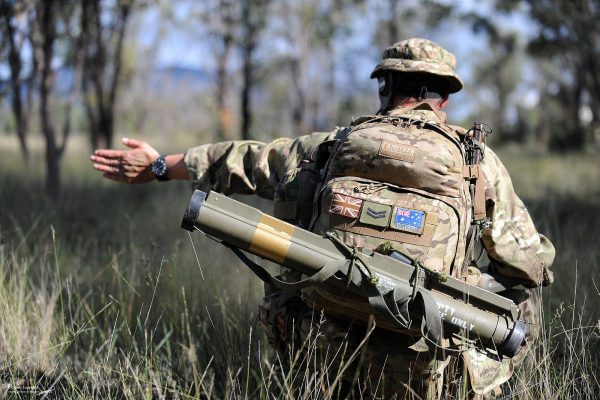‘Capability’ saves lives
Posted By Andrew Harrison on November 1, 2017 @ 11:00

In the past 15 years, I’ve had the privilege to stand shoulder to shoulder with Australian soldiers in a maelstrom of combat through Africa, Iraq and Afghanistan. Invariably my ADF colleagues have been brave, highly professional and, of course, brilliantly mischievous.
When I became the UK’s Defence Adviser earlier this year, I was therefore not surprised to find that our broader military relationship remains just as close. Not only do our two countries exchange more than a hundred service personnel, we enjoy a vibrant and enduring two-way training and exercise program. It covers every area of defence and wider security, including conventional forces, cyber, intelligence, science, technology and innovation.
That military friendship and professional camaraderie is underpinned by a close political relationship, best exemplified by the annual ministerial dialogue between our foreign affairs and defence ministers.
Cementing all of these person-to-person links are a raft of formal agreements, memoranda of understanding and an overarching bilateral defence security and cooperation treaty, signed in Perth in 2013.
We are two of the world’s most advanced defence forces, with deep historical links, shared common values, interoperable equipment, intertwined doctrine, recent operational experience and an almost identical sense of humour.
Discussions about Australia’s future frigate program have dominated my time as Defence Adviser. As an army officer of nearly 30 years’ experience, I have little expertise in the complex and secret world of anti-submarine warfare. I listen with unbridled respect as technical officers explain to me the science of active and passive sonar, multispectral sonar buoy fields, cavitation rates and a plethora of other capabilities that align to deliver the ability to fight and win under water.
I may be new to this world, but I know, beyond any doubt, the difference between fighting with great equipment and fighting with equipment that’s suboptimal.
During two years in southern Iraq, I operated from the army’s notorious ‘Snatch’ vehicles. I saw them repeatedly shredded by Jaysh al-Mahdi’s brutally effective, explosively formed projectiles. In ‘capability’ terms, we were overmatched. Soldiers under my command paid the ultimate price.
Conversely, in Afghanistan I spent six months deep in Taliban-held country, operating from some of the best-protected vehicles in the world. Twenty-six times vehicles in my battle group were struck by enemy improvised explosive devices, some gargantuan in scale. Not one of my troops was killed in those attacks.
From this experience, and dozens of similar examples, I’ve learned the unequivocal lesson that great equipment saves lives.
In discussions in Canberra, ‘capability’ often appears as a buzzword in the ethereal worlds of policy, procurement and politics. Around the clock, brilliant officers, officials and politicians work the near-impossible task of balancing competing priorities to deliver the ADF new equipment. For the soldiers, sailors and aircrew who have to face the violent challenges of combat, ‘capability’ is their last line of defence; it saves lives. All considerations in procurement are vitally important, but in the binary, visceral arena of warfare, having the second-best capability is terminal. And if Australian troops lose, every other consideration becomes secondary.
Seared into my teenage memory is the grainy television news of the Falklands campaign. Night after night I watched the harrowing footage of British ships being sunk. One by one, HMS Sheffield, Ardent, Antelope, Coventry, the Atlantic Conveyor and the Sir Galahad were enveloped by the cold waters of the South Atlantic Ocean. The results of that conflict have been obvious through my career; instinctively, the Royal Navy has understood the value of the very best capability. They will do everything to safeguard their sailors. Despite the competing challenges of humanitarian assistance, disaster relief and defence engagement, they understand that the primary purpose of their ships is to fight, prevail and win. Probably as well as any navy in the world, they understand the value of ‘capability’.
As the Royal Australian Navy sails into contested waters, in deeply uncertain times, I reflect on the words of an erudite historian who lectured me at our Joint Staff College: ‘There is one immutable truth we cannot prevent; war is coming, we just don’t know when or where.’ I hope he was wrong, but I doubt it.
If, or when, my good friends in the ADF face the next storm of conflict, I hope and pray they have the very best ‘capability’ available.
Article printed from The Strategist: https://www.aspistrategist.org.au
URL to article: https://www.aspistrategist.org.au/capability-saves-lives/
Click here to print.